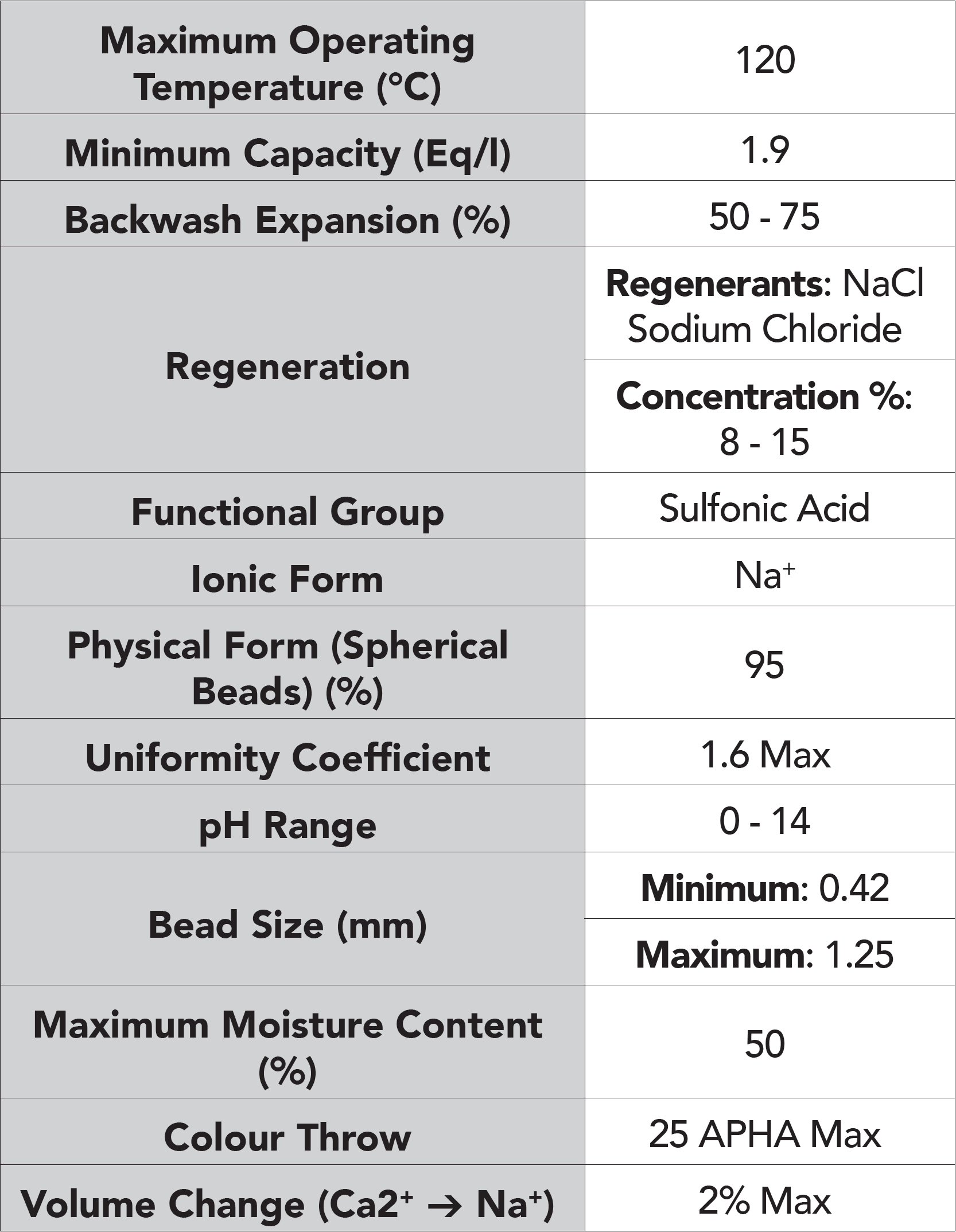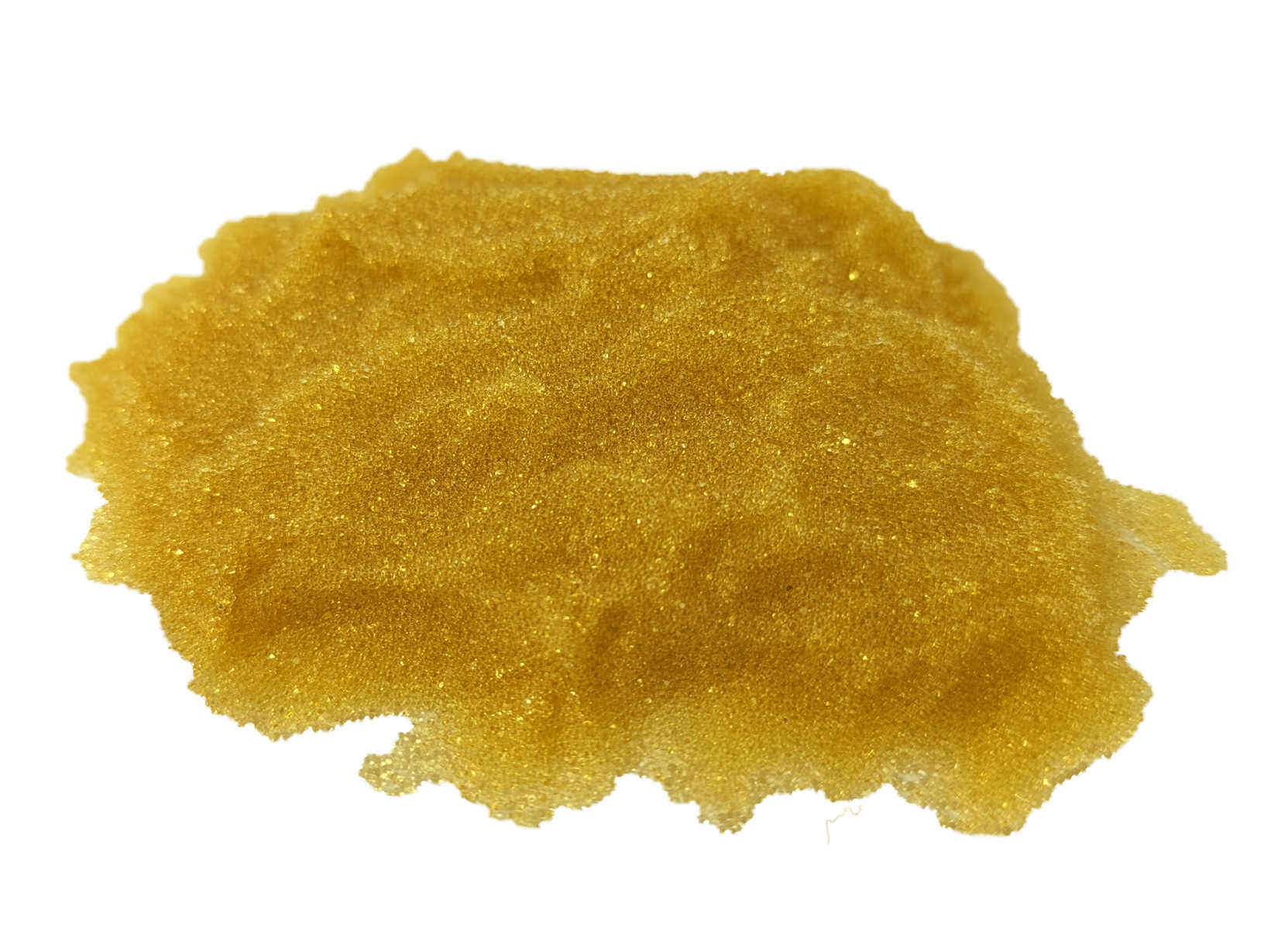Softening Resin (SRSO)
- Manufactured from a gel-type sulphonated polystyrene cation, resulting in a resin of moist, uniform spherical beads which ensures overall integrity and strength, achieving excellent capacity and low extractable content
- Removes CaCO³ and scale buildup which reduces long-term maintenance costs
- Commercial food processing
- Prevents scale deposits to protect equipment and appliances
- Pre RO water treatment
- Final polishing stage
- Autoclaves
- Glass washing
- Pharmaceutical


Features & Information
SPECTRUM Softening Resin is specially formulated to target scale-forming ions, such as calcium and magnesium. Designed for use in commercial and industrial water softening systems.
FAQs - SRSO
SPECTRUM SRSO is a gel-type sulfonated polystyrene cation resin. Its primary function is to remove hardness ions (calcium and magnesium) from water by exchanging them with sodium ions, thereby softening the water.
SPECTRUM SRSO resin is designed for both commercial and industrial water softening applications. It can be used in pressure vessels for larger-scale applications and in empty cartridge shells for smaller, point-of-use applications.
SPECTRUM SRSO resin offers several advantages, including high bead integrity, excellent chemical and physical stability, and very low extractable content. These properties make it ideal for both general and sensitive/critical water softening applications.
SPECTRUM SRSO resin operates through a process called ion exchange. It releases sodium ions into the water and captures calcium and magnesium ions, effectively softening the water by reducing its hardness. The regeneration process involves passing a sodium chloride (salt) solution through the resin bed to replace the captured hardness ions (calcium and magnesium) with sodium ions.
